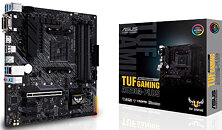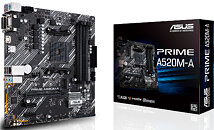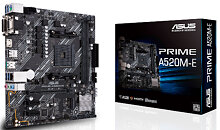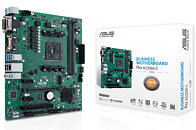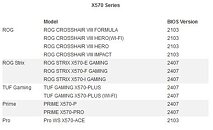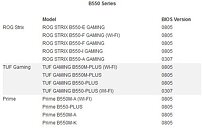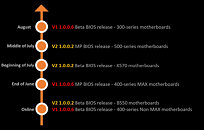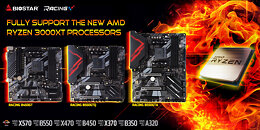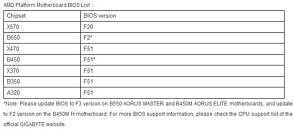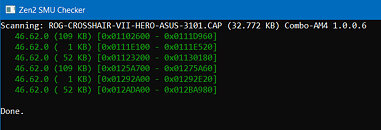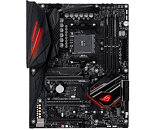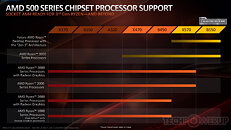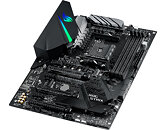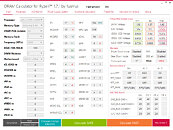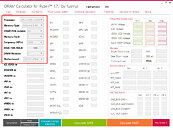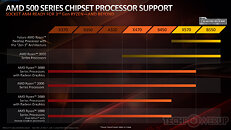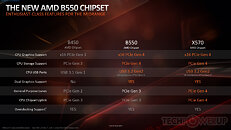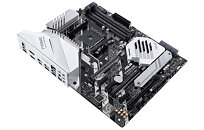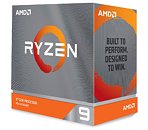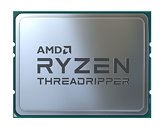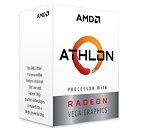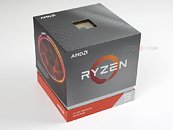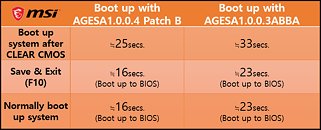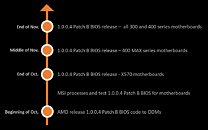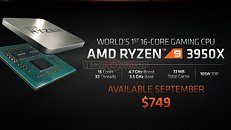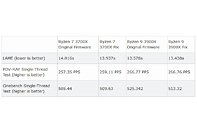
BIOSTAR 500 Series Motherboards with AGESA Combov2 PI 1.0.8.1 BIOS Update
BIOSTAR, a leading brand of motherboards, graphics cards, and storage devices, today announces that their motherboards are ready to support future Ryzen with AGESA Combo V2 PI 1.0.8.1 BIOS update.
With a wide list of supporting models, BIOSTAR consumers can rest assured that their dreams of upgrading to the future Ryzen are fully achievable. With a few easy steps to update the BIOS version, users can enjoy the full benefits of the future Ryzen from their existing BIOSTAR 500 series AM4 motherboards. Gaming and content creation will get extended benefits like improving memory compatibility and memory overclocking capabilities after AGESA Combo V2 PI 1.0.8.1 BIOS updating.
With a wide list of supporting models, BIOSTAR consumers can rest assured that their dreams of upgrading to the future Ryzen are fully achievable. With a few easy steps to update the BIOS version, users can enjoy the full benefits of the future Ryzen from their existing BIOSTAR 500 series AM4 motherboards. Gaming and content creation will get extended benefits like improving memory compatibility and memory overclocking capabilities after AGESA Combo V2 PI 1.0.8.1 BIOS updating.




